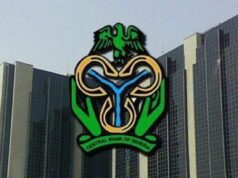AUGUST 7, 2018 – The World Bank plans to increase its funding to Nigeria by $4.5 billion over the next three years to support projects in the power and health industries and in governance, the lender’s vice president for Africa said.
“This is indicative — in the next 18 months or so, we expect to put in place projects for around $2.5 billion,” Hafez Ghanem said in an interview Thursday in Nigeria’s capital, Abuja. “We are thinking about financing more investments in power and the area of social protection.” The Washington-based institution currently has 30 projects estimated at $10 billion in Nigeria.
President Muhammadu Buhari in June signed the country’s 9.1 trillion-naira ($25 billion) budget for 2018, the biggest yet, to boost infrastructure investment in Africa’s top oil producer, and support economic recovery. The International Monetary Fund forecast Nigeria’s economy will expand 2.1 percent this year after it contracted in 2016, when prices and output of crude declined. Budget documents forecast a deficit of 2 trillion naira, more than half of which will be plugged by borrowing.
The nation is scheduled to hold general elections in February, in which Buhari plans to seek another term. He’ll have to address revenue collection, power shortages and fuel subsidies, among other things. Below are some excerpts from the interview with Ghanem on these issues:
On tax:
“Non-oil tax collection in Nigeria is presently very weak and well below the levels of structural and regional peer countries. Nigeria needs to increase its non-oil revenue collected at both the federal and state level across the main type of taxes; income, VAT, excises and customs, and states’ internally generated revenues.”
“To do that requires strengthening tax administration and increasing compliance rates, and reforms including rationalizing tax incentives and exemptions and selectively increasing rates such as excise on alcohol and tobacco.”
On the election’s impact on the economy:
“The elections are unlikely to directly impact growth in 2019, although inflationary pressures may increase from election spending. We are concerned about potential delays in implementation of government programs due to the focus on elections. We urge the government to remain focused on implementing the Economic Recovery and Growth Plan, which includes the power-sector recovery plan.” The blueprint covers 2017 to 2020 and seeks to revive the oil-reliant economy.
On fuel subsidies:
“The near doubling of gasoline prices on the world market since early 2016 has put pressure on a number of countries that subsidize petrol, including Nigeria.”
Subsidies “not only create a fiscal burden but also help the rich more than the poor, and have a number of negative consequences.”
“It’s very important that as these policies are phased out, social protection measures are phased in to help those who will be hit hardest by the rise in prices.” With four ill-maintained state-owned refineries working at just a fraction of their capacity, Nigeria depends on gasoline imports to meet domestic needs. Successive governments have subsidized imports, through a system riddled with patronage and corruption, to ensure lower prices.









